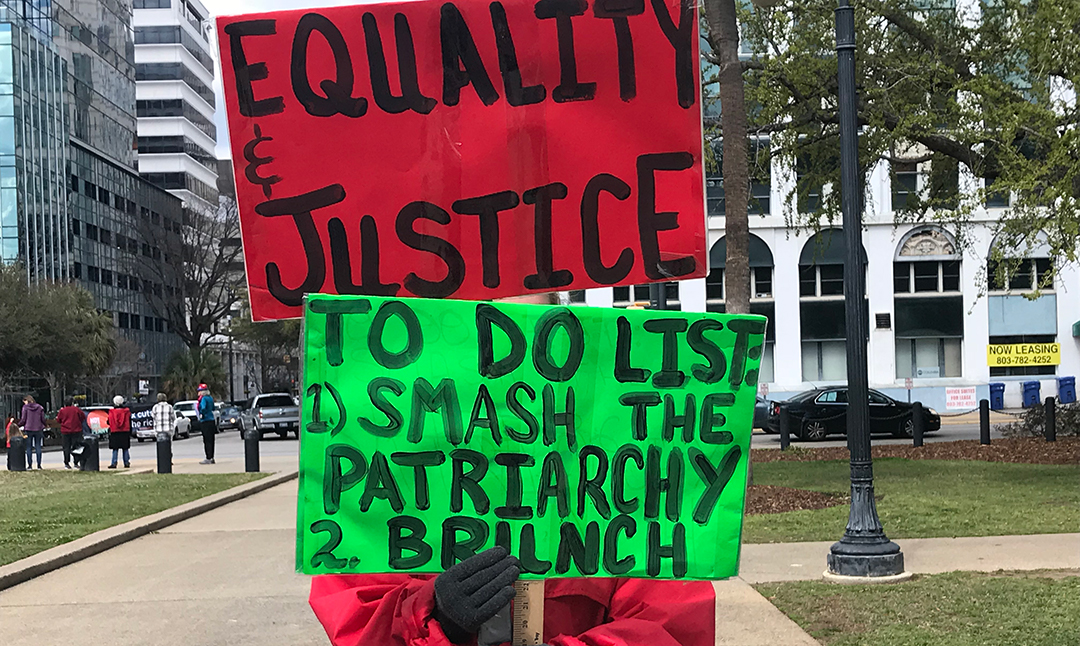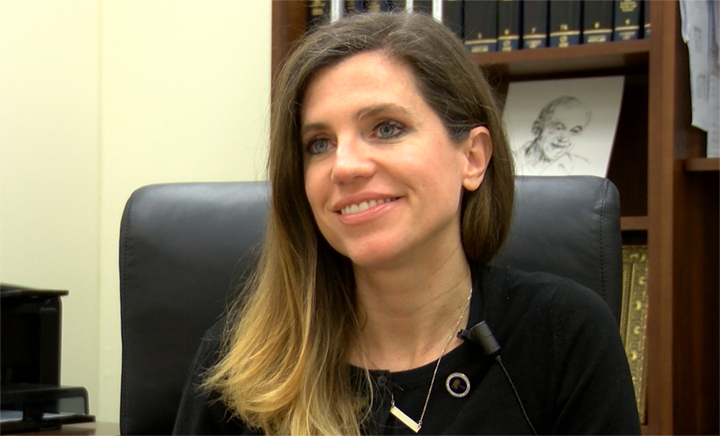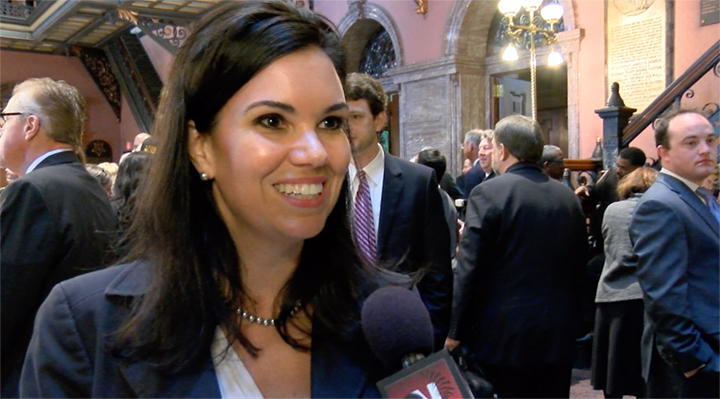
Colorful posters marked a protest held at the S.C. State House on International Women’s Day.
Rep. Nancy Mace, R-Berkeley and Charleston, explains how her time as a student at the Citadel taught her patience and the value of hard work.
Rep. Mandy Powers Norrell, D-Lancaster explains the differences in the number of men and women at the State House and encourages more women to run for office.
Nancy Mace, a newly minted member of the South Carolina House, has declared 2018 “the year of the woman.”
Mace, who represents Charleston and Berkeley County, won in a special election replacing Jim Merrill, the former representative.
Mace was the first woman to graduate from the Citadel and credits much of her work ethic to her college experience. She’s a firm conservative and doesn’t consider herself a feminist, although she recognizes that others may assume she’s a feminist because of her history.
Now she is one of 27 women in the South Carolina legislature, which has a total of 170 members, 124 in the House and 46 in the Senate.
However, 27 women is the most that South Carolina has ever had in office. Four women hold Senate positions and 23 are members of the House of Representatives.
“For me, this is a lot of women, especially compared to when I first started six years ago,” Rep. Mandy Powers Norrell, D-Lancaster, said.
Norrell takes pride in being a part of the historic number of women in South Carolina public service but still encourages more women to run for office.
“When you decide to run for office as a woman, you can’t overthink it,” Norrell said. “My children, there have been things I’ve missed, but there have also been things that they’ve been able to participate in that are extremely enriching for them. There’s a real trade-off there.”
More women appear to be pushing for political office. According to a report released by Rutgers University in January, there’s an unprecedented surge of women running for office nationally. Nearly 400 women are running for U.S. House of Representative positions; roughly 50 women are running for the U.S. Senate and there were 75 registered women running for governorships. It’s a historic number of women taking political charge.
“We have so many women that want to be involved politically,” Mace said. “When I had my general election, my Democratic opponent was a woman. In my general election this year, my Democratic opponent is a woman.”
Despite seeing more women run for political positions, there still may need to be a societal shift in people’s opinions towards women in order to see these women actually take power.
“No matter how hard you bang your head against the wall, or glass ceiling, as it may be, the barriers are there and it requires Herculean effort, and sometimes even effort alone, no matter how great, cannot overcome those barriers,” says Karen Mallia, a professor of advertising at the University of South Carolina. Mallia has spent her academia studying the careers and culture of women in advertising.
Mills Hayes, the student body vice president-elect at USC, admires the careers of women like former S.C. Gov. Nikki Haley. Hayes praised Haley for her tenacity.
“[Haley] now is a United Nations Ambassador. That’s amazing. And she’s from South Carolina. It just goes to show you that a small-town girl from a town in South Carolina, she can do it all,” Hayes said. Haley was the first woman and minority to be elected governor in South Carolina and now serves as the United Nations Ambassador for the U.S.
“We’re just trying to give people a seat at the table, who historically haven’t had a seat. That’s really important,” says Hayes, who is looking to use her time as vice president to advocate for students.
Mace acknowledged the importance of the work that these women do while in office, because she thinks it impacts people every day.
“We don’t have to be perfect plus in order to be able to contribute,” Norrell said. “We just go in with our imperfect selves and do the best that we can, and a lot of times we’re going to be able to do a lot more than our colleagues.”
“It’s an imperfect world, it’s an unfair world, and sometimes as a woman, you have to work twice as hard to be seen half as good,” Mace said.
She emphasized that working hard and showing up to the table is crucial for women, and men, to be successful in any positions.
“It doesn’t matter if we just sit at home and do nothing in order to have a voice. We have to be the voice. We have to be active politically, and that means running for office,” Mace said.






